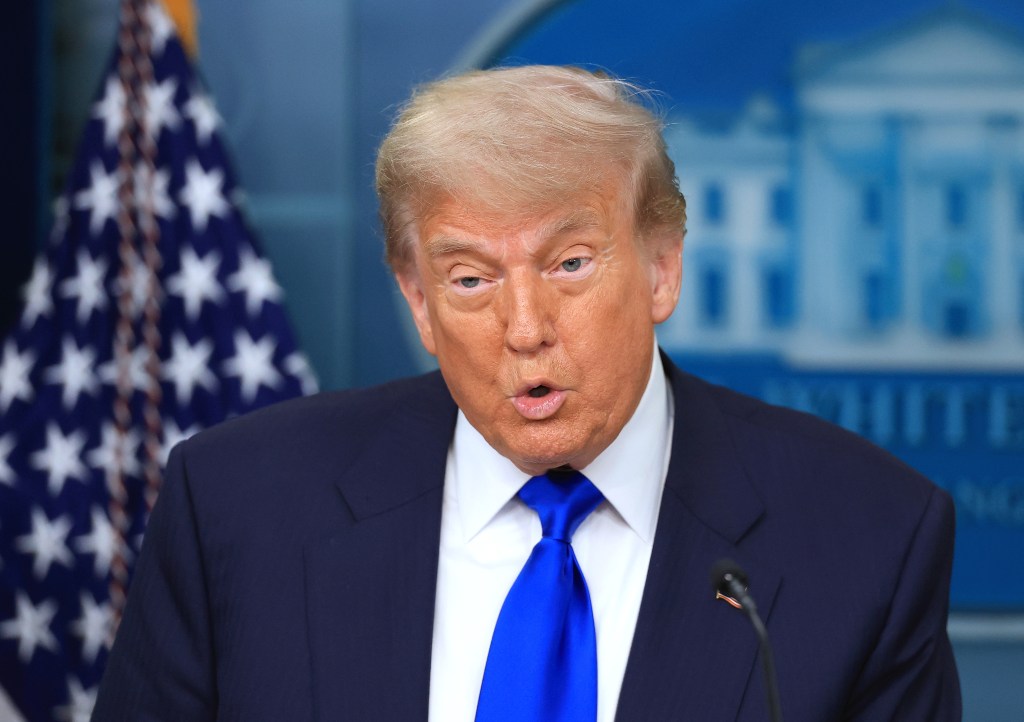When Donald Trump signs the “Big, Beautiful Bill” on Friday, it will be a starting point for a big messaging battle with an eye on the 2026 midterms.
Hollywood activists are likely to play a big part of that, particularly on the left, where the concern is not only on the major cuts to Medicaid and nutrition programs, but a huge increase in funding for immigration enforcement. The legislation also has a large scale roll back of clean energy initiatives, to the dismay of everyone from climate activists to Elon Musk.
Overall, Republicans’ goal in passing the legislation was to extend the tax cuts that were put in pace in 2017, during Trump’s first term, as well as to add billions to border security and defense spending.
The legislation also makes across-the-board tax changes to things like deductions for highly compensated employees and to charitable giving. One of the most hotly contested was over the deduction for state and local income taxes, of special interest to those living in New York, California and other large states. The SALT deduction limit of $10,000, put in place in the 2017 law, will be increased to $40,000. But that would start to phase out at a $500,000 income threshold. It also retains the pass-through entity tax workaround. But the SALT cap will revert to $10,000 in 2030.
But tucked into the mammoth legislation, which the Congressional Budget Office says will add $3.3 trillion to the national debt over the next decade, are some provisions that have potential impact on the entertainment and media business.
Here’s a glimpse of what’s in:
Sound recording expensing: The legislation added sound recordings to the list of Section 181 tax deductions that have been offered to film, TV and live theatrical productions. This allows artists and producers to deduct 100% of the production expenses, up to $150,000, in the year that they occurred, rather than set them on an amortization schedule. “This is a powerful win for independent artists, giving them the support they need to keep creating and ensuring the music industry continues to thrive,” Recording Academy CEO Harvey Mason Jr. said in a statement.
Spectrum: The bill authorizes the government to identify and auction highly prized spectrum for commercial use in an effort to raise $85 billion. “This will create jobs, encourage innovation, and expand high-speed connections to more Americans,” said FCC Chairman Brendan Carr. The provision also was praised by USTelecom, representing major companies like Verizon and AT&T. But some public interest groups warn that the sale of spectrum could come at the cost of unlicensed spectrum on the 6 GHz band, set aside for faster Wi-Fi.
Kennedy Center: The bill allocates $257 million for restoration, repairs and security at the Kennedy Center, the national cultural arts center on the Potomac. Trump engineered a takeover of the institution just weeks after taking office and, soon after, called for its overhaul. His dedication to the Kennedy Center is a contrast to the National Endowment for the Arts and the National Endowment for the Humanities, both of which the president wants to eliminate. In contrast to the Kennedy Center, which caters largely to an audience in Washington, D.C., the NEA and the NEH fund arts and cultural programs across the country.
The National Garden of American Heroes: The bill directs $40 million to come from the National Endowment for the Humanities budget to finance a National Garden of American Heroes, an idea long floated by Trump. Trump had previously suggested a long list of names for the garden, from John Adams to Dr. Seuss to Jeane Kirkpatrick to Walt Disney. Joe Biden canceled the project, but Trump revived it, and has pitched it as honoring 250 individuals to make the country’s 250th anniversary next year. The money allocated would be used to pay for statues, among other things.
What’s not in the bill:
AI moratorium. Some industry groups fought a provision that would have barred states from regulating artificial intelligence for the next 10 years. That would have jeopardized laws such as Tennessee’s ELVIS Act, passed last year to give artists and any individual the of publicity over their voice and likeness. The Senate voted 99-1 to take that provision out of the legislation before the bill passed in the chamber.
Performing artists parity. The 2017 tax law eliminated the ability of many actors and performers to deduct expenses, such those for costumes and head shots. Congress eliminated employees’ ability to deduct miscellaneous and unreimbursed business expenses. And while many actors work as if they are independent contractors, they are paid as W2 employees.
Actors Equity has for years sought relief, including via an expansion of the qualified performing artist deduction, something that is still limited to a paltry $16,000. Yet their proposal — to up that amount to $100,000 for single filers and $200,000 for married artists — was not in the Big, Beautiful Bill Act. In a statement, Actors Equity President Brooke Shields said that the measure would “put money back into the pockets of thousands of arts workers, from musicians to actors and stage managers to the crew who bring live theatre and film and television shows to life.” She has said that she will still seek passage this Congress.
One final note: The bill does not include any large-scale, expanded federal TV and movie production incentive, something that came to the fore when Trump announced his desire to impose tariffs on overseas productions. Trump had said that he wanted to meet with representatives from the industry, but that is still TBD.



